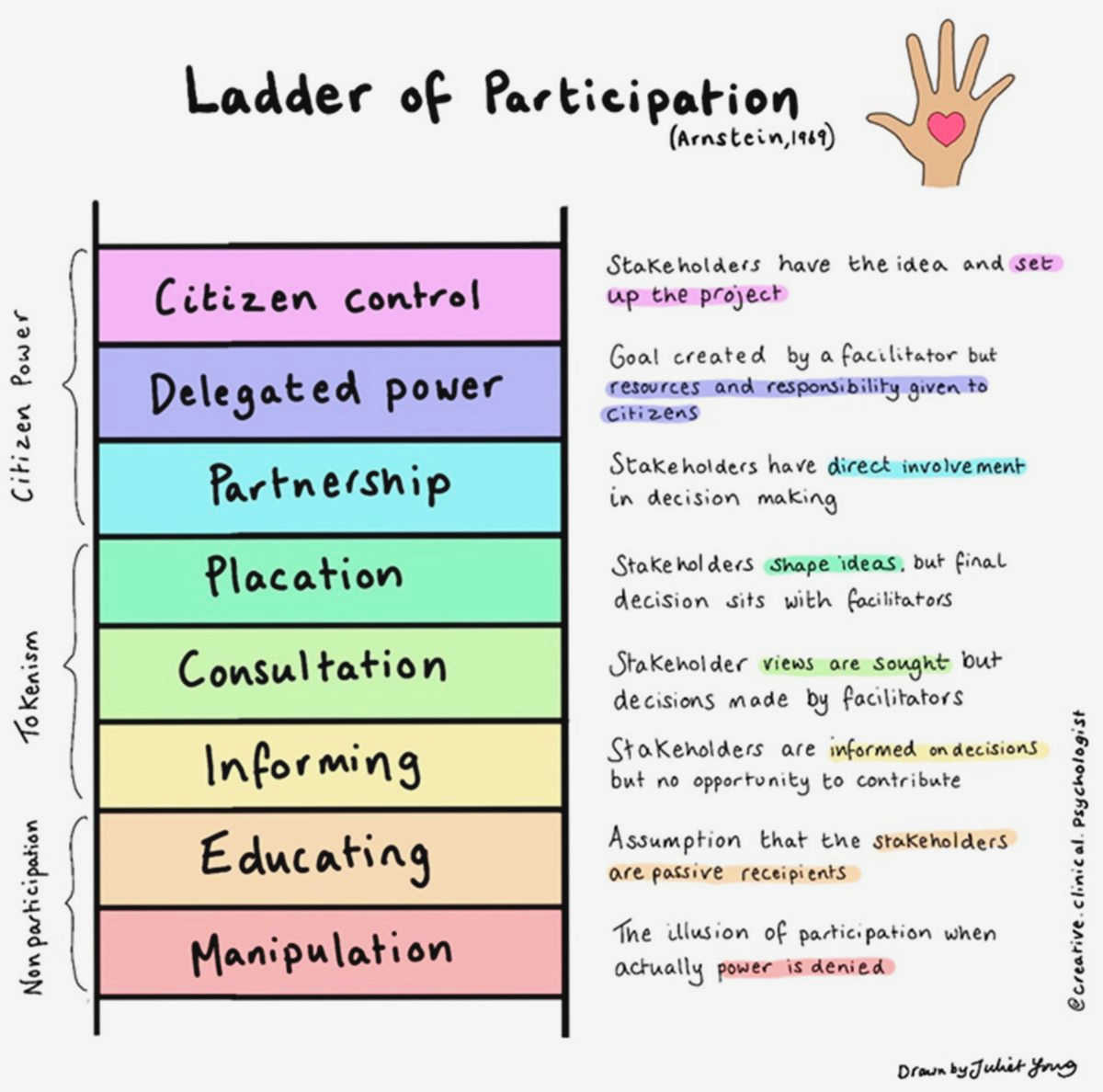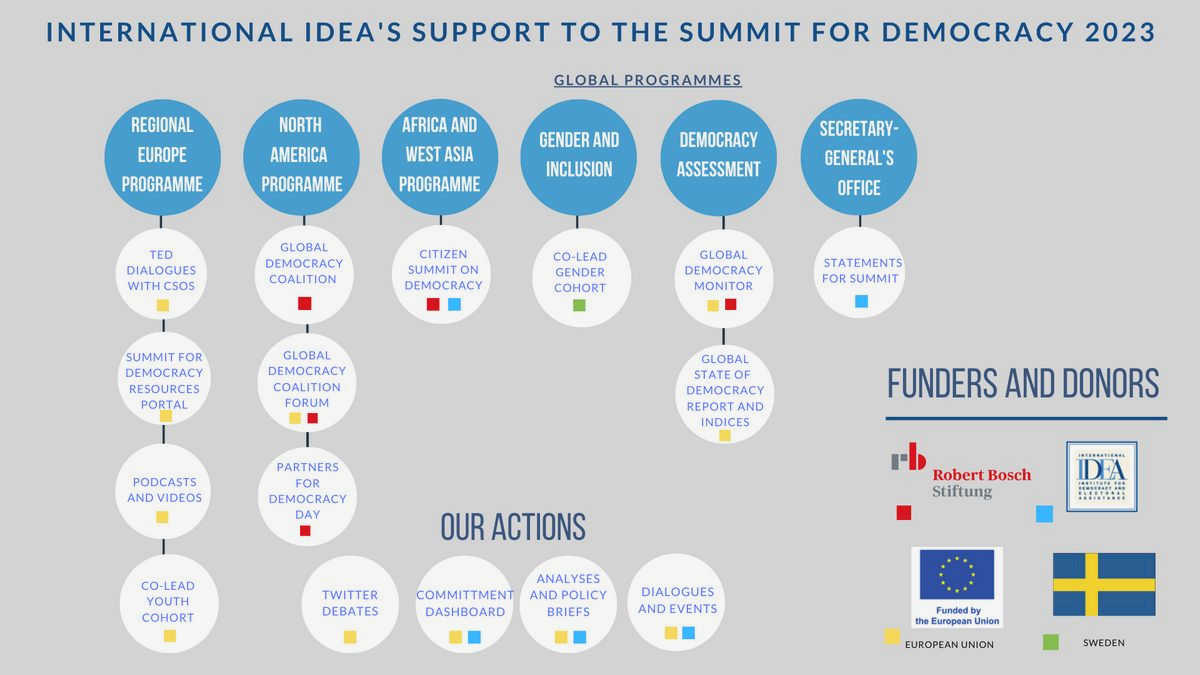The right to assembly is a fundamental pillar of democratic societies and plays a crucial role in strengthening civil society and fostering democracy. This right empowers individuals to come together, express their opinions, and collectively advocate for their rights and interests. It provides a platform for citizens to engage with their government, hold elected officials accountable, and shape public policy.
One of the key benefits of the right to assembly is its ability to facilitate the formation of civil society organizations. These organizations, such as non-governmental organizations (NGOs), trade unions, and community groups, bring together individuals with shared values and concerns. They serve as a voice for marginalized communities, advocate for social justice, and work towards the common good.
Furthermore, the right to assembly fosters an environment of open dialogue, debate, and public discourse. It allows for the free exchange of ideas and opinions, leading to the development of diverse perspectives and innovative solutions. By promoting active participation and civic engagement, assembly rights contribute to the creation of an active citizenry that is informed, involved, and invested in the democratic process.
By protecting the right to assembly, democratic societies ensure that citizens can peacefully assemble in public spaces, organize protests, and participate in public demonstrations. This not only allows individuals to express their grievances but also serves as a powerful mechanism for social change. History has shown that mass gatherings and peaceful protests have played a pivotal role in advancing civil rights, challenging oppressive regimes, and demanding political reforms.
In conclusion, the right to assembly is an essential component of a democratic society. It empowers individuals to come together, form civil society organizations, engage with their government, and advocate for their rights and interests. By fostering an environment of open dialogue and public discourse, assembly rights contribute to a vibrant and participatory democracy. As such, it is crucial for governments to respect and protect this fundamental right in order to build strong civil societies and foster democratic governance.
The Foundation of Democracy
Democracy is built upon the principles of freedom, equality, and the participation of citizens in the decision-making processes of their society. At its core, democracy empowers individuals to express their opinions and assemble peacefully, creating a space for dialogue, debate, and the exchange of ideas. The right to assembly plays a crucial role in fostering democracy by enabling citizens to come together, organize, and collectively voice their concerns and aspirations.
The right to assembly is an essential component of a functioning civil society. It allows individuals to form associations, join political parties, and advocate for their rights and interests. Through assembly, people can gather in public spaces, such as parks or city squares, or organize protests, demonstrations, and rallies. These collective actions express the diversity of opinions, raise awareness about social issues, and put pressure on those in power to listen and respond.
Moreover, the right to assembly promotes transparency and accountability in democratic systems. It serves as a check on abuses of power and enables citizens to hold their elected representatives and institutions accountable. By joining together, citizens can demand transparency, challenge unjust policies, and ensure that their voices are heard in the decision-making process.
Access to assembly also empowers marginalized and oppressed groups, providing them with a platform to address their specific concerns and advocate for their rights. It allows these groups to come together, share experiences, and build solidarity, fostering social cohesion and supporting inclusive democratic processes.
Understanding the Right to Assembly
The right to assembly is a fundamental human right that allows individuals to gather together for peaceful purposes, express their opinions, and engage in collective action. It is an essential element of a democratic society and serves as a cornerstone for strengthening civil society and fostering democracy.
Freedom of assembly enables individuals to come together, form associations, and peacefully protest against government policies or injustices. It empowers citizens to exercise their right to voice their concerns and demand social and political changes. By assembling and expressing their views collectively, people can attract public attention, raise awareness, and put pressure on authorities to address their grievances.
Democracy and the right to assembly are closely intertwined. The right to assembly ensures that citizens have the freedom to gather and participate in public discussions, debates, and decision-making processes. It allows individuals to engage in meaningful political participation, promote transparency, and hold their government accountable.
Civil society plays a crucial role in strengthening democracy, and the right to assembly fosters the development of civil society by providing a space for citizens to come together, exchange ideas, and organize around common causes. It facilitates the formation of civic organizations, advocacy groups, and grassroots movements that work towards social change and promote the common good.
The right to assembly also contributes to the pluralism and diversity of opinions and perspectives within society. It allows different groups and individuals with varying interests to gather and express their views, contributing to a vibrant public discourse and fostering a culture of tolerance and inclusivity. By respecting and protecting the right to assemble, governments can create an environment that encourages dialogue and cooperation among diverse groups.
The Role of Civil Society
Civil society plays a vital role in strengthening democracy and promoting the right to assembly. It acts as a check on government power, ensuring that the rights and interests of individuals and communities are protected and represented. By mobilizing citizens and advocating for their rights, civil society organizations contribute to the development of a more inclusive and participatory democracy.
Advocacy and Policy Influence: One of the key functions of civil society is to advocate for policies and laws that uphold the right to assembly. Civil society organizations often work together to promote and protect this fundamental right, lobbying governments and raising awareness about the importance of freedom of assembly for a healthy democracy. Through their collective action and advocacy efforts, civil society helps shape public opinion and influence policy decisions.
Monitoring and Accountability: Civil society organizations play a critical role in monitoring the actions of governments and holding them accountable for their commitments to uphold the right to assembly. They provide independent oversight and report on any violations or breaches of this right. This monitoring role helps ensure that governments are held responsible for their actions and that citizens can exercise their right to assembly without fear of reprisal or suppression.
Capacity Building and Empowerment: Civil society organizations often work at the grassroots level to build the capacity of individuals and communities to exercise their right to assembly. They provide training, education, and resources to empower citizens to organize and participate in peaceful protests, public gatherings, and social movements. By equipping people with the necessary skills and knowledge, civil society strengthens the foundations of a vibrant and active citizenry.
Social Cohesion and Solidarity: Civil society plays a crucial role in fostering social cohesion and solidarity within a society. Through their diverse membership and active engagement, civil society organizations bring together people from different backgrounds and perspectives, fostering dialogue, understanding, and cooperation. This sense of unity and shared purpose helps strengthen democratic institutions and promote a culture of inclusivity and respect for human rights.
International Cooperation: Civil society organizations also play an essential role in fostering international cooperation and exchange. They collaborate with like-minded organizations from around the world to share best practices, advocate for global standards, and support each other in promoting the right to assembly and other civil liberties. These international networks and partnerships amplify the voices of civil society and contribute to the global advancement of democratic values and principles.
Empowering Citizens
The right to assembly plays a crucial role in empowering citizens and allowing them to actively participate in democratic processes. It provides a platform for individuals to come together, exchange ideas, and voice their opinions on matters of public concern.
By exercising their right to assembly, citizens can form organizations, associations, and community groups that advocate for various causes, such as human rights, social justice, and environmental protection. These groups become a powerful force in society, holding those in power accountable and ensuring that the needs and concerns of the people are addressed.
Furthermore, the right to assembly enables citizens to organize peaceful protests and demonstrations to draw attention to issues that require immediate action. By gathering in large numbers, citizens can raise awareness about injustices, bring about social change, and influence government policies. This form of collective action gives individuals a sense of agency and empowers them to take an active role in shaping their communities and society as a whole.
Moreover, the right to assembly allows citizens to connect with like-minded individuals, fostering a sense of solidarity and community. By participating in assemblies, citizens can build networks, share experiences, and learn from each other. These connections help to strengthen civil society, as individuals become more informed, engaged, and motivated to work together towards common goals.
In conclusion, the right to assembly is integral to empowering citizens and strengthening civil society. It provides a platform for individuals to come together, advocate for their rights, and participate in democratic processes. By exercising this right, citizens can make their voices heard, hold those in power accountable, and contribute to the development of a more democratic and inclusive society.
Guaranteeing Freedom of Expression
Freedom of expression is a fundamental right that is crucial for the functioning of a democratic society. It allows individuals to express their opinions and ideas freely, without fear of persecution or censorship. This right is particularly vital in strengthening civil society and fostering democracy, as it enables citizens to participate in public debates, hold their governments accountable, and contribute to the development of inclusive policies and initiatives.
One of the key ways to guarantee freedom of expression is by ensuring the right to assemble and peacefully protest. When individuals are able to gather in public spaces and voice their concerns, they are able to amplify their message and advocate for change. Through peaceful demonstrations, citizens can draw attention to important issues, raise public awareness, and put pressure on policymakers to address their grievances.
Furthermore, freedom of expression extends beyond just verbal communication. It also encompasses artistic expression, which plays a crucial role in challenging societal norms, promoting diverse perspectives, and inspiring critical thinking. Artists have the freedom to create works that push boundaries, question authority, and reflect the realities of their societies. This artistic freedom not only enriches cultural expression but also fosters a sense of empowerment and engagement within the civil society.
It is important for governments to protect and uphold freedom of expression in order to strengthen civil society and foster democracy. This involves creating an enabling environment where individuals and groups can freely express their opinions, without fear of reprisal or discrimination. It also requires the repeal of laws that restrict freedom of expression, such as defamation or blasphemy laws, which can be used to stifle dissent and limit public discourse.
In conclusion, guaranteeing freedom of expression is essential for strengthening civil society and fostering democracy. By protecting the right to assemble and peacefully protest, promoting artistic expression, and creating an enabling environment for free speech, governments can empower citizens to actively engage in public life, contribute to policy-making processes, and hold those in power accountable. It is through the exercise of this fundamental right that civil society can thrive and democracy can flourish.
The Connection to the Right to Assembly
The right to assembly plays a crucial role in strengthening civil society and fostering democracy. As an essential component of freedom of expression and association, the right to assembly empowers individuals to come together, voice their concerns, and collectively work towards the betterment of their society. By enabling people to gather, protest, and engage in peaceful demonstrations, the right to assembly helps to promote dialogue, facilitate the exchange of ideas, and drive social change.

One of the key connections between the right to assembly and civil society is the ability to form and join organizations that advocate for specific causes or address certain societal issues. The right to assembly allows individuals to form non-governmental organizations, civil society groups, or community organizations that can mobilize people and resources to address common concerns, such as human rights, social justice, and environmental protection. These organizations can play a crucial role in raising awareness, advocating for policy changes, and holding governments accountable.
In addition to enabling the formation of civil society organizations, the right to assembly also facilitates the participation of citizens in decision-making processes. By coming together in public spaces, individuals can engage in peaceful protests, demonstrations, or public hearings to voice their opinions, demand accountability, and influence government policies. This collective action not only allows citizens to express their grievances and advocate for change but also puts pressure on authorities to be responsive to public concerns.
Furthermore, the right to assembly contributes to the development of a vibrant and pluralistic civil society. By allowing diverse groups of individuals to gather and express their opinions, this right helps to foster dialogue, promote tolerance, and enhance understanding among different segments of society. Through peaceful assembly, people from various backgrounds and perspectives can come together, exchange ideas, and develop consensus on common issues, leading to the strengthening of democratic values and the advancement of civil society as a whole.
In conclusion, the right to assembly is an essential element in strengthening civil society and fostering democracy. By empowering individuals to gather, express their views, and participate in public life, this right enables the formation of civil society organizations, facilitates citizen participation, and promotes dialogue and understanding. Recognizing and protecting the right to assembly is crucial for building inclusive, democratic societies where citizens are empowered to shape their own futures.
Catalyzing Social Change
The right to assembly plays a crucial role in catalyzing social change and fostering a more inclusive and democratic society. By allowing individuals to come together in a peaceful manner, the right to assembly empowers citizens to voice their concerns, express their opinions, and advocate for change.
One way in which the right to assembly catalyzes social change is by providing a platform for marginalized groups to amplify their voices. Whether it is a protest, a demonstration, or a public gathering, the right to assembly allows individuals from all walks of life to unite and highlight the issues they face. This can lead to greater awareness and understanding of the challenges faced by marginalized communities, and ultimately, drive policy changes and social reforms.
Furthermore, the right to assembly enables citizens to collectively hold their governments accountable. By assembling in public spaces and engaging in peaceful protests, individuals can demand transparency, accountability, and justice from their leaders. This not only serves as a check on the power of those in positions of authority but also helps to strengthen democratic processes and ensure that the voices and concerns of the people are heard and addressed.
Moreover, the right to assembly facilitates the exchange of ideas and perspectives. When people gather together, they can engage in meaningful conversations, share information and experiences, and challenge prevailing narratives. This exchange of ideas can lead to the creation of new solutions, the development of innovative policies, and the promotion of tolerance and understanding among different groups. In this way, the right to assembly acts as a catalyst for social change by fostering dialogue and collaboration.
In conclusion, the right to assembly is a fundamental human right that plays a vital role in catalyzing social change. It empowers individuals and communities to come together, express their concerns, and advocate for change. By amplifying marginalized voices, holding governments accountable, facilitating the exchange of ideas, and promoting dialogue and collaboration, the right to assembly strengthens civil society and fosters democracy.
Impact on Political Movements
The right to assembly plays a crucial role in the functioning of political movements and their ability to advocate for change. It provides a platform for individuals and groups to come together, voice their concerns, and express their political opinions. This can be particularly significant in countries where the political landscape is oppressive or restrictive, as the right to assembly allows dissatisfied citizens to gather in solidarity and demand for political reforms.
Through assemblies, political movements can effectively communicate their message to a wider audience and mobilize people towards their cause. These gatherings often attract media attention, which further amplifies their message and increases their visibility. Political movements can use assemblies as a platform to organize protests, rallies, and demonstrations, showcasing their strength in numbers and exerting pressure on the government to bring about change.
The right to assembly also enables political movements to cultivate a sense of community and belonging among their supporters. By participating in assemblies and engaging in collective action, individuals feel connected to a larger movement and find solidarity with like-minded individuals. This fosters a sense of empowerment and encourages individuals to continue their engagement in political activism.
In addition, the right to assembly facilitates the formation of coalitions and alliances between different political movements and interest groups. Through assemblies, like-minded organizations can come together, share resources and strategies, and collaborate on joint initiatives. This enhances the effectiveness and reach of political movements, as they can pool their expertise and resources towards a common goal.
In conclusion, the right to assembly has a profound impact on political movements by providing a platform for advocacy, mobilization, and collaboration. It empowers individuals and groups to voice their concerns, express their political opinions, and demand for change. By fostering a sense of community and enabling collective action, the right to assembly strengthens civil society and contributes to the promotion of democracy.
Building Community and Solidarity
One of the key benefits of the right to assembly is its ability to build community and solidarity among individuals who share a common cause or interest. When people come together to exercise their right to peacefully gather and express their opinions, they form a sense of belonging and connection with others who hold similar beliefs. This sense of community and solidarity strengthens civil society as it encourages individuals to actively participate in shaping the society they live in.
The right to assembly provides a space for individuals to come together and engage in open dialogue, sharing ideas, experiences, and concerns. Through this process, people learn from one another, broaden their perspectives, and develop a deeper understanding of the issues at hand. This shared knowledge and mutual understanding contribute to the formation of a cohesive community that is united in its goals and aspirations.
Community-building through the right to assembly also fosters social bonds and relationships. When people meet and interact with one another in the context of a peaceful assembly, they forge connections that can extend beyond the event itself. These relationships can lead to ongoing collaboration, support networks, and collective action, all of which contribute to the overall strength and resilience of civil society.
The right to assembly is particularly important for marginalized and minority groups who may face systemic challenges in having their voices heard. By coming together in solidarity, these groups can amplify their voices and advocate for their rights and interests. These collective actions can bring about meaningful social change and create a more inclusive and equitable society.
Bonding Through Assembly
Creating Solidarity
Assembly allows individuals to come together and express their common goals, values, and concerns. By joining forces to peacefully assemble, people strengthen their sense of solidarity and belonging. When like-minded individuals gather, they can build a strong collective identity and become more aware of their shared struggles and aspirations. Whether it is a protest, a community meeting, or a social event, assembly provides a platform for individuals to connect with others who share their views and work towards common objectives.
Fostering Dialogue and Understanding
The right to assembly also plays a crucial role in fostering dialogue and understanding among members of a society. When people come together to voice their opinions, they have the opportunity to engage in meaningful conversations and exchange ideas. Assembly allows for the open exchange of different perspectives, which can lead to greater empathy and understanding among individuals with diverse backgrounds and beliefs. Through peaceful assembly, people can challenge stereotypes, break down barriers, and develop a more inclusive and tolerant society.
Building Collective Power
Assembly enables individuals to collectively exercise power and influence decision-making processes. When people gather in large numbers, their voices become louder and harder to ignore. By uniting their efforts through assembly, individuals can raise awareness about important issues, mobilize for change, and hold those in power accountable. Assembly provides a platform for marginalized groups to organize and articulate their demands, helping to challenge existing power structures and ensure that the voices of all members of society are heard and respected.
Strengthening Civil Society
The right to assembly is fundamental to the strength and vitality of civil society. Through assembly, individuals can participate in public life, contribute to the development of policies and laws, and shape the direction of their communities. Assembly allows for the formation of various civic groups, associations, and organizations, which are essential for a thriving democracy. These groups can engage in advocacy, promote social change, and work towards a more just and equitable society. By fostering active citizenship and engagement, assembly helps to nurture a robust civil society that upholds democratic values and principles.
Ensuring Government Accountability
The right to assembly plays a crucial role in ensuring government accountability. When citizens have the freedom to peacefully gather and express their grievances, it creates a platform for them to hold their government accountable for its actions. Through protests, demonstrations, and other forms of public assembly, citizens can voice their concerns and demand transparency and accountability from their leaders.
Public assemblies provide an opportunity for citizens to engage directly with their government officials and express their concerns face-to-face. This direct interaction not only puts pressure on the government to address these concerns, but also fosters a sense of responsibility and responsiveness among the leaders. When government officials witness the mass mobilization and the strong voices of the people, they are more likely to acknowledge and take action on the issues raised.
Furthermore, the right to assembly enables citizens to mobilize and form citizen watchdog groups or organizations that monitor the actions of the government. These groups can conduct independent investigations, analyze government policies, and provide an objective assessment of the government’s performance. By sharing this information with the public, they hold the government accountable and empower citizens with knowledge to make informed decisions.
The right to assembly also serves as a deterrent against government corruption and abuse of power. When citizens are able to gather and publicly raise their concerns, it creates a sense of fear among corrupt officials who have something to hide. The presence of a vibrant civil society that exercises the right to assembly acts as a check on the government’s actions and helps prevent abuse of power.
In summary, the right to assembly is essential in ensuring government accountability. It provides a platform for citizens to express their concerns, engage with government officials, form citizen watchdog groups, and act as a deterrent against corruption and abuse of power. Upholding this right is crucial for strengthening civil society and fostering democracy.
The Role of Assembly in Oversight
The right to assembly plays a crucial role in fostering democracy and strengthening civil society, as it enables citizens to gather and collectively express their opinions and concerns. One significant aspect of assembly is its role in oversight, which refers to the power of citizens to monitor and hold accountable their government and public officials.
Oversight through assembly

Assembly serves as a platform for citizens to come together and discuss issues of public concern, including government actions and policies. Through peaceful protests, demonstrations, or public meetings, citizens can express their discontent, demand transparency, and hold their government accountable for its actions. Assembly provides a forum for citizens to voice their concerns, which can lead to increased awareness and public scrutiny of government decisions.
Transparency and accountability

By exercising their right to assembly, citizens contribute to creating a transparent and accountable government. When public officials are aware that their decisions and actions will be subject to public scrutiny, they are more likely to act in the best interest of the people they serve. The presence of assembly acts as a deterrent against corruption, as it creates a system of checks and balances and promotes open dialogue between the government and its citizens.
Information dissemination and citizen participation

Assembly also plays a crucial role in disseminating information and fostering citizen participation. Through assemblies, citizens gain access to information about government actions and policies, which allows them to make informed decisions and actively engage in the democratic process. Assembly provides a platform for citizens to voice their opinions, propose alternative solutions, and actively participate in shaping public policies.
International recognition and protection

The right to assembly is recognized and protected under various international human rights instruments, such as the Universal Declaration of Human Rights and the International Covenant on Civil and Political Rights. This recognition emphasizes the importance of assembly in fostering democracy and strengthening civil society. Governments are thereby obligated to respect and protect the right to assembly, ensuring that citizens can exercise their right freely and without undue interference.
In conclusion, the right to assembly plays a vital role in oversight by enabling citizens to monitor and hold their government accountable. It promotes transparency, accountability, information dissemination, and citizen participation in the democratic process. As such, the right to assembly is a fundamental pillar of a democratic society and a crucial tool for strengthening civil society and fostering democracy.





